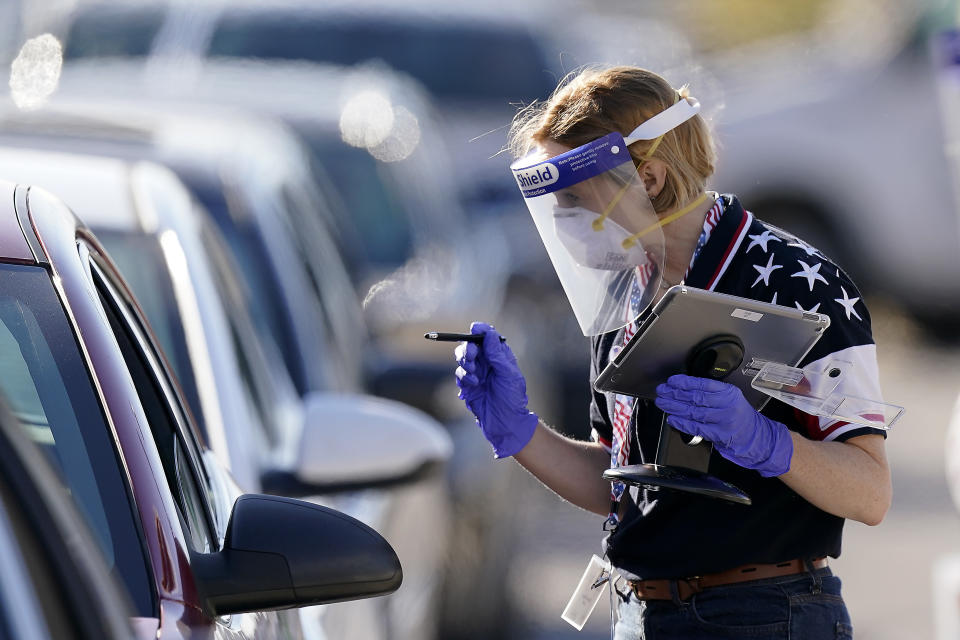Coronavirus update: Election Day marks surge in daily cases; election uncertainty boosts pharma
A historic Election Day also marked the second-highest daily coronavirus case count at more than 91,000 — following last Friday’s record of nearly 100,000 new cases.
Hospitalization and death spikes are expected to follow, as Fundstrat Global Advisors noted Wednesday. Currently, the conversion of positive cases to hospitalizations has remained lower than what was seen in the earlier waves of the pandemic.
“But the total number [of] hospitalized patients keeps rising. So the absolute level of patients is going up and this tells us that there is still a growing burden of those needing care. But the number of cases is far higher in this wave than wave 1 and wave 2, and we should expect more to be hospitalized,” Fundstrat analysts wrote.
Meanwhile, all eyes are on increasing European lockdowns, with the Netherlands extending restrictions and Italy preparing to issue new ones.
Even though the prospect of knowing vaccine efficacy results by the end of the month is still high, a new non-peer reviewed study is offering even more optimism for a quicker return to normal once a vaccine is out.
A U.K. group released a study which found the immune systems of individuals who recovered from COVID-19 show promise of remembering how to fight the virus — an encouraging development for vaccine efforts and reducing the likelihood of reinfection.
“Cellular immunity is a complex but potentially very significant piece of the COVID-19 puzzle, and it’s important that more research be done in this area,” said one author, Dr. Shamez Ladhani, a consultant epidemiologist at Public Health England.
“However, early results show that T-cell responses may outlast the initial antibody response, which could have a significant impact on COVID vaccine development and immunity research,” he added.
The researchers noted more research is needed to determine what type of immune response specifically results in stronger protection against re-infection.
If Republicans keep their majority in the Senate, Biden's more expansive plans for addressing health care affordability by expanding ACA subsidies and adding a public option seem dead in the water.
— Larry Levitt (@larry_levitt) November 4, 2020
COVID-19 and election impact
Waiting for a stimulus bill, especially once the new configuration of Congress is revealed, remains a key issue for the economy.
In a note Wednesday, ING analysts said, “This is not a good outcome for the economy since the headwinds from rising COVID cases, troubled state and local government finances (that risk further spending cuts and job losses) and falling incomes as unemployment benefits expire, are growing in strength.”

Meanwhile, the health care industry was particularly optimistic Wednesday, as an anticipated “blue wave” did not pan out, which provides some breathing room on immediate political pressures.
SVB Leerink analyst Geoffrey Porges wrote in a note Wednesday that if Republicans maintain control of the Senate, it could provide a shield for the industry against controversial reforms.
“The Trump administration’s exercise of executive power also poses a more immediate and material threat to industry profitability than the comparable rule-making we might expect from a Biden administration,” Porges said, adding, “Investors may be more concerned about Biden’s proposed independent review board to set drug pricing than they are about Trump’s proposals.”
More from Anjalee:
Fauci: Vaccines will only prevent symptoms, not block the virus
A Biden win could lead to a mask mandate, more testing: Expert
Trump admin rules for health insurer price transparency has potential to curb costs
Read the latest financial and business news from Yahoo Finance
Follow Yahoo Finance on Twitter, Facebook, Instagram, Flipboard, SmartNews, LinkedIn, YouTube.
